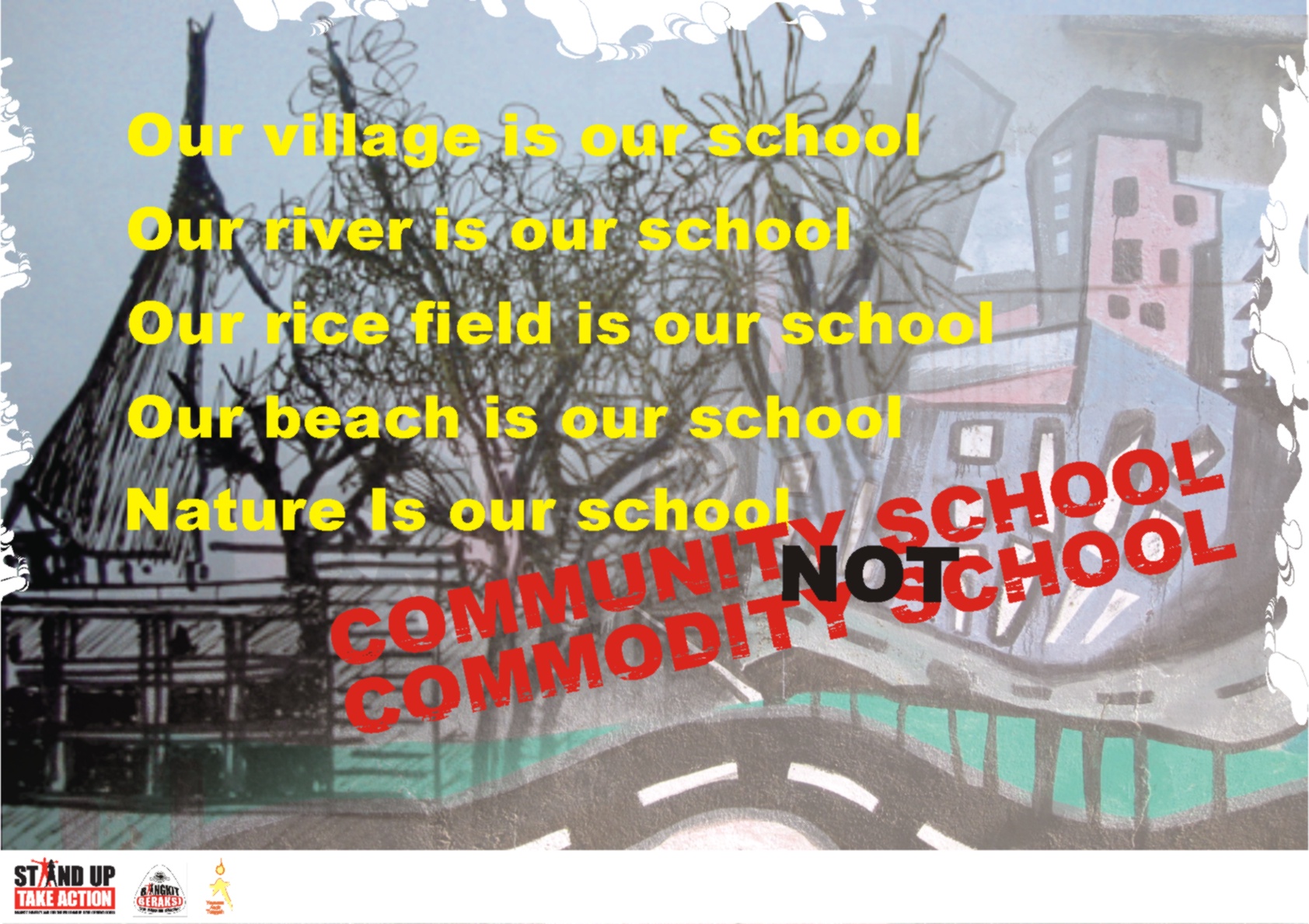Serendip is an independent site partnering with faculty at multiple colleges and universities around the world. Happy exploring!
Bubugan Free School and Anak Tangguh


The first time I traveled to Indonesia, in the summer of 2009, I was lucky enough to be introduced to a wide range of people doing important community work. Some of these people were helping to set up two different (but similar) free education programs for children – the Bubugan Free School and Anak Tangguh. The former focuses on providing after-school and weekend programs to the children of Javanese immigrants, who face discrimination and prejudice in Denpasar, Bali’s capital city. The latter organization offers programming to all children in a Denpasar suburb, and takes pains to include a wide range of kids. Although the programs are different in many important ways, one striking commonality was the focus on teaching children to speak English. Although I never explicitly heard anyone explain why learning the English language was crucial for future success, there seemed to be the tacit assumption that the US has hegemonic influence in today’s globalized world and English is the language of power.
This understanding of US control (and the reality of US power) is upsetting and complex and fascinating, and has been the topic of conversation in countless Political Science seminar classrooms I’ve been in. But what really fascinated me was the ways in which children from both these programs made the connection between the importance of English in their own lives and the importance of learning English for their parents and other adults. Many of the people I got to know who had children in these programs were themselves getting English tutorials from their kids. A Bryn Mawr friend who also travelled to Bali made a comparison between Bryn Mawr’s Teaching and Learning Initiative (TLI), a program where “faculty and staff are paired with students based on common interests. Both partners share their knowledge, allowing each participant to step into the role of teacher and learner.” In many ways, a similar exchange was happening organically between children and adults in these communities. The children were still being taught by their parents, but also had knowledge to offer in return. In many ways, this phenomenon upends many assumptions about education – information was being passed up, rather than passed down, and formal learning was happening outside the confines of a formal institution.


Comments
Post new comment